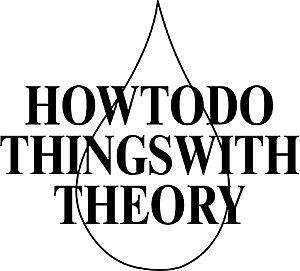Textile Politics: Flags, Nets, Maquettes ~ Grant Watson's seminar from Confluence to Confluence
April 2024: confluence 4 in Essaouira
In this seminar we will discuss textiles, writing, and other forms of cultural practice, in terms of how these touch the political and emerge from collective experience. The seminar will include a close reading of Deleuze and Guattari “Towards a Minor Literature,” looking at forms of writing from a minoritarian position; Joseph McBrinn’s “Queering The Subversive Stitch,” which develops arguments from Rozsika Parker’s seminal text, where embroidery is understood as defining and containing female labour, as well as a potential source of radicalism—extending this to include queer embroidery as an activity inherently subversive or deviant; and Sadie Plant’s “Zeroes and Ones: Digital Women and the New Technoculture,” which demonstrates the author’s feminist method of experimental writing in fragments that move between digital technology, Jacquard weaving, questions of originality, and group work. Alongside these readings the seminar will include a workshop, questioning what makes an artistic practice “political” through a mapping of its various elements.
readings:
Gilles Deleuze and Felix Guattari, “What is a Minor Literature?,” in Kafka: Towards a Minor Literature. University of Minnesota Press, Minneapolis, 1985. 16 - 27.
Joseph McBrinn, “Needlework and the Creation of Masculinities: 'The Prick' of Patriarchy,” in Queering the Subversive Stitch. Bloomsbury, London, 2021. 11 - 47.
Sadie Plant, “Digital Women and the New Technoculture,” in The Textile Reade (ed. Jessica Hemmings). Berg, London, New York, 2012. 324 - 335.
March 2024: confluence 3 at PAF
This seminar explores ideas concerning territory and aesthetics as developed by Deleuze and Guattari in their discussion of the refrain. It will address processes of territorialisation through rhythm, colour and silhouette in nature which define a spatial range and forms of cultural expression that produce a signature and a sense of having and belonging. It will look at the role of textiles and apparel in acts of territorial aggression and resistance, including through a reading of Frantz Fanon’s “Algeria Unveiled” which describes the values attributed to processes of veiling and unveiling by Algerian society and its French colonisers, and the part both veiling unveiling played in the Algerian Revolution through acts of refusal and insurgency, as seen in The Battle of Algiers. A second example is the transcoding of ideas and values that occur in the planting of a rainbow flag in Gaza, by Israeli soldier Yoav Atzimov (Oct 26, 2023) which will be discussed using Jasbir Puar’s conceptual frame “homo-nationalism” to interrogate how symbols of gay liberation become appropriated then weaponised in the service of colonial violence. Finally, the seminar will include a presentation of material from the exhibition Material Power: Palestinian Embroidery currently at the Whitworth Gallery, Manchester, which demonstrates this medium’s regional variation in historic Palestine and its politicisation during the First Intifada of 1987 – 1993.
readings:
Jasbir Puar. “Rethinking Homonationalism.” Journal of Middle East Studies 45 (2013)
Deleuze and Guattari. “Of The Refrain.” In A Thousand Plateaus, University of Minnesota Press (1987), 311 – 317. (use the page numbers published in the book not the PDF digital page numbers)
Frantz Fanon. “Algeria Unveiled.” In A Dying Colonialism. New York: Grove Press, 1965. 35 – 67.
January 2024: confluence 2 at NAC, Nida
This seminar will introduce the idea of a “textile politics” through a range of introductory texts. These include Bruce Robbins’ discussion of politics, aesthetics, scholarship and commitment, and the link between intellectual and artistic work and global urgencies, through his concept of the sweatshop sublime; Deleuze and Guattari’s use of weaving and felt as models for “smooth and striated space” and their compositional relationship to state structures and nomadic desert cultures; Sarat Maharaj’s discussion of normative and deviant genres in art, with reference to a mythological weaving competition between Athena and Arachne; and Jorella Andrews’ phenomenological approach to learning form textiles as “orphaned objects” where a history and meaning have been erased.
readings:
Jorella Andrews. Erasure and Epoché: Phenomenological Strategies for Thinking in and with Devastation. Research Online, Goldsmiths, University of London, 2019.
Gilles Deleuze and Felix Guattari. “Smooth and Striated Space.” In A Thousand Plateaus, Capitalism and Schizophrenia. London: Athlone Press, 1992.
Sarat Maharaj. “Arachne’s Genre: Towards Intercultural Studies in Textiles.” In The Textile Reader. Edited by Jessica Hemmings. London and New York: Berg, 2012.
Bruce Robbins. “The Sweatshop Sublime.” PLMA 117, nr. 1 (2002): 84-97.
November 2023: introduction days at PAF, St. Erme:
DAI-BULLETIN 2023—2024 nr. 1 November 2023

